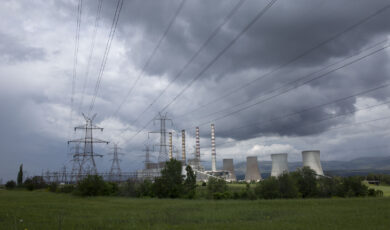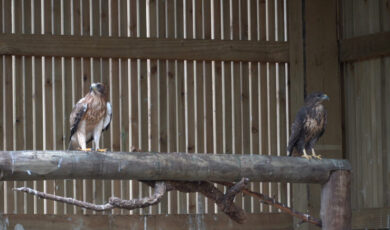DOCUMENTARY: Helping birds fly again in Portugal through the EU Emissions Trading System
Through the Portuguese Environmental Fund, Portugal is using revenue from the EU’s Emissions Trading System to help decarbonise the country. Our documentary highlights the story of an animal shelter in Lisbon which uses EU ETS funds for nature conservation purposes.
Portugal is home to a diverse range of ecosystems, including coastal areas, forests, wetlands, and Mediterranean landscapes. However, the impact of humans is noticeable in the country, translating into habitat loss and degradation for the native animal species. This means that animals and nature conservation are crucial aspects of preserving the country’s rich biodiversity and natural heritage.
In this context, the shelter Centro de Recuperação de Animais Silvestres (CRAS) is dedicated to the rehabilitation of native wild fauna, combining nature conservation, medicine and biology. Using EU ETS revenues, they are helping birds, mammals, reptiles and amphibians, with the largest proportion being birds.
Interviews
“By improving our capacity in terms of equipment and facilities, we can make this evolution and really move towards greater success in the rehabilitation of animals. This is the only way to guarantee that wildlife rehabilitation truly contributes to the conservation of the species we are treating.”
Verónica Bogalho, CRAS.
“Wildlife rehabilitation can make an important contribution to nature conservation in general and in particular to the species being rehabilitated. In the case of highly endangered species, supporting them can be an important population booster to maintain stability or even support the growth of wild populations.”
Erica Brazio, CRAS.
“We would like to have more detailed information on how the revenues from the EU ETS are actually being spent, because this remains unclear. We also believe that the funds should go to projects that are real and can be proven with verifiable indicators.”
Ana Muller, Project & Policy Officer at ZERO.
“More of this is needed throughout Europe. Still, too many emission allowances are handed out for free to large industries. If we auction those, it will create more revenues to invest in climate-friendly solutions.”
Sam van den plas, Policy Director at Carbon Market Watch.
This story is part of the Human Stories project that aims to reveal how the EU ETS affects people’s lives in the path to decarbonise Europe and how this potential can be further boosted.













